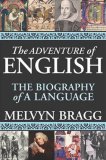Summary | Excerpt | Reviews | Beyond the Book | Readalikes | Genres & Themes | Author Bio

Critics' Opinion:
Readers' Opinion:
First Published:
Sep 2004, 336 pages
Paperback:
Sep 2006, 336 pages
 Book Reviewed by:
Book Reviewed by:
BookBrowse Review Team
Buy This Book
"Deke's you gadji ower yonder wid't dukal an't baary mort gaan t'beck." (Look at that man over there with the dog and the sexy girl going down to the river.) All us under-twelves in the 1940s spoke like that. We loved to sound just "uz."
When we said "blud" for "blood" and "grun" for "ground," we were way nearer Old than BBC English. No one told us that in the 1940s and 1950s. Had they done so, we might have been proud that our way of speaking was in direct descent from the great warrior founding tribes of our language one and a half millennia ago. It might have done us good. Instead, whenever we strayed from our Cumbrian patch, especially when we left the boundaries of the ancient Northumbrian kingdom and heaved up in what we felt were more polished locations, we felt like rude mechanicals. We were encouraged to wipe that dialect off our lips.
The passage of history had reduced the once fierce language of power and rule into local speech, if not of the oppressed then certainly of those outside the pale of a tongue which calculated its civilisation partly by its distance from what had become a dialect. The transformed tongue was still built on the rock of Old English, the common words, the keys to the language, the grammar, the forceful expression of feelings. That, it seems, will survive any attempt to change. But the accent and context which had bred and nurtured it was lost to the new powers and it was pushed to the margins, as Celtic had been.
But in my youth it flourished still. In the 1940s, for instance, a young soldier called Harold Manning went to Iceland when the Allies occupied that country. He came from South Cumbria and his vocabulary was freckled with Norse words from the dialect. In Iceland, perhaps the most formaldehyde-protected of the Old Norse tongue, he used words from his home dialect and made himself understood. Within a week or two he was conversant with the Icelanders. Old Norse was that deeply bitten into the Old North.
And it is that Nordic element, always building on Old English but in the north clawing deeply into the language, which lies at the core of the fundamental separation— so often noted—between the north and south of England. It is a divide which even today, with the levelling out of the language, distinguishes the north from the rest of Britain and will perhaps provide a platform for a return to a form of regional government for Northumbria as England finally loosens its hold on its first colonies. But that is another story. In the ninth century such a prospect would have been a luxury. English had a surprisingly slender chance and but for a visionary strategy it could well have slid away.
So I would say "Aah's gaan yem." "Gaan," or "gan" or "gangan," meaning to go, was an Anglo-Saxon word also known to the Vikings. "Yem" means home in Scandinavian. In Old Norse it is "heim." I would "laik in t beck." "Leika" is an Old Norse word for "play"; "bekkr" a word for "stream." I would "axe for breed." "Axe" is from the Anglo-Saxon "acsian," "breed" is northern but Anglo-Saxon in origin, meaning bread. I would say "nowt" (nothing) and "owt" (anything) from the Anglian words "nawiht" and "awiht." I would climb a "yek" (oak) tree to get a "yebby" (stick). "Claggy" was sticky, and like "clarty" (muddy), it most likely comes from Scandinavian. I wore "claes" (clothes), Anglo-Saxon, and as a "lad" (Anglo-Saxon) I would "loup" (Old Norse) "ower a yat or yet" (a gate— northern pronunciation) or "gawp" (stare) at a "brock" (Celtic, badger). And "yen" will always be one.
Hybrid county dialects like these, which used to be spoken by the majority in a Britain of proud geographical minorities, are now disappearing as we move to cities and as the way of life which informed the way of speech falls away. It is impressive to see the efforts being made by dialect societies and local publishers to keep the tongue alive, to keep in touch, through the history in speech, with that period when we were stitching together languages old and new. But until very recently we still sounded not unlike those who had brought them from the western European shorelands more than a millennium ago.
From Chapter 2 of The Adventure of English by Melvyn Bragg, pages 16-28. Copyright Melvyn Bragg 2003. All rights reserved. Reproduced by permission of the publisher, Arcade Publishing Inc. No part of this book may be reproduced without written permission from the publisher.





The House on Biscayne Bay
by Chanel Cleeton
As death stalks a gothic mansion in Miami, the lives of two women intertwine as the past and present collide.

The Flower Sisters
by Michelle Collins Anderson
From the new Fannie Flagg of the Ozarks, a richly-woven story of family, forgiveness, and reinvention.

The Funeral Cryer by Wenyan Lu
Debut novelist Wenyan Lu brings us this witty yet profound story about one woman's midlife reawakening in contemporary rural China.
Your guide toexceptional books
BookBrowse seeks out and recommends the best in contemporary fiction and nonfiction—books that not only engage and entertain but also deepen our understanding of ourselves and the world around us.